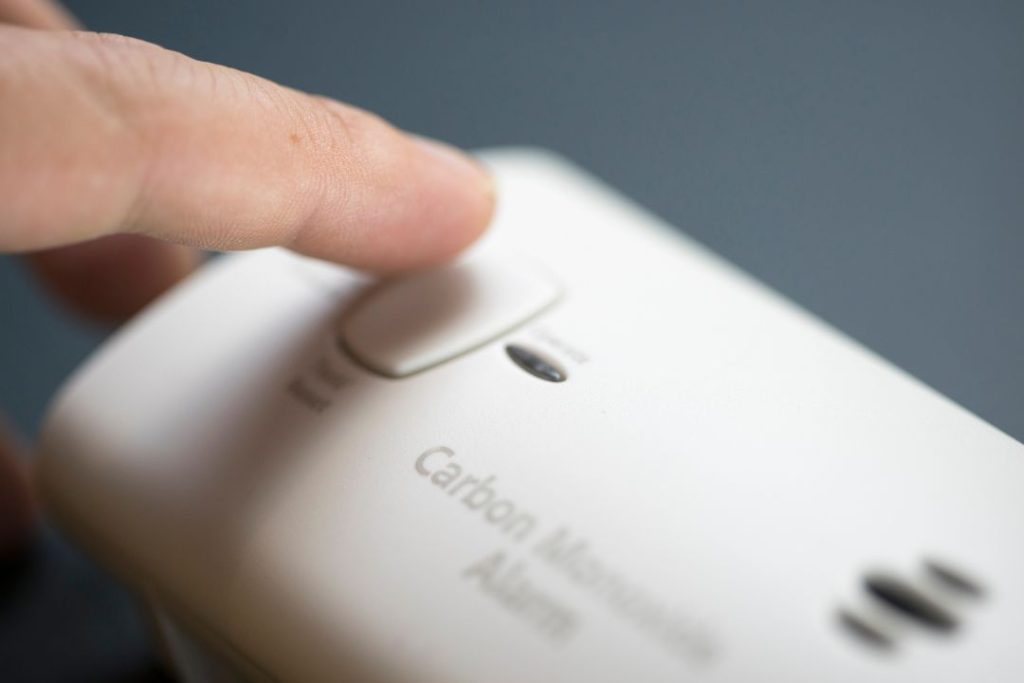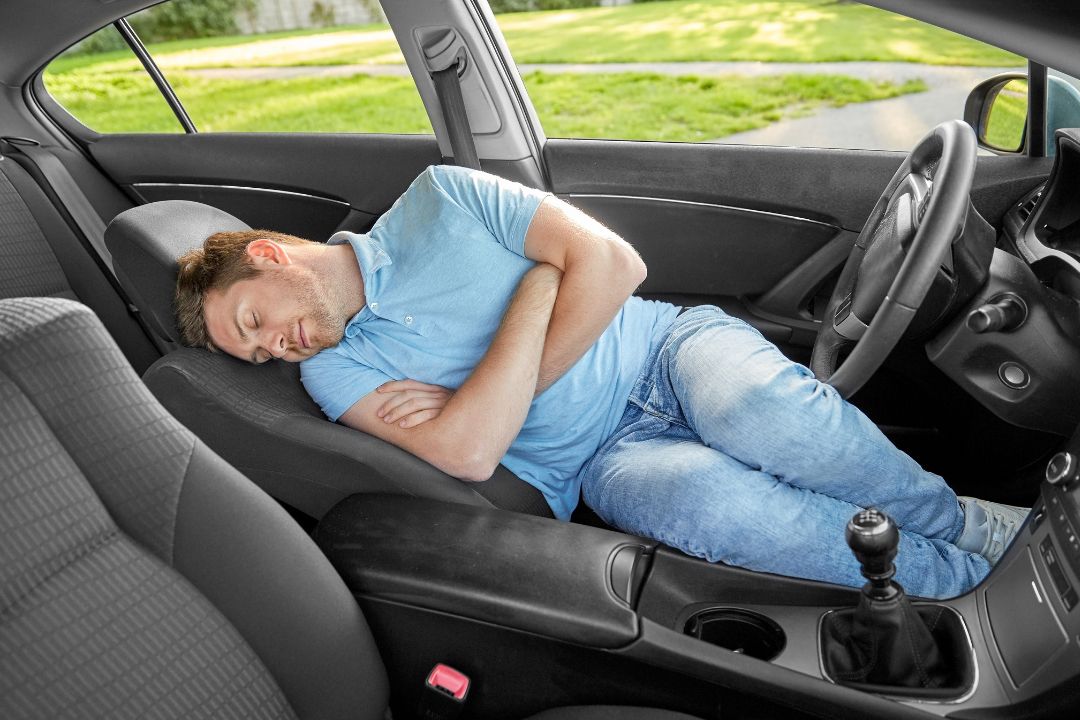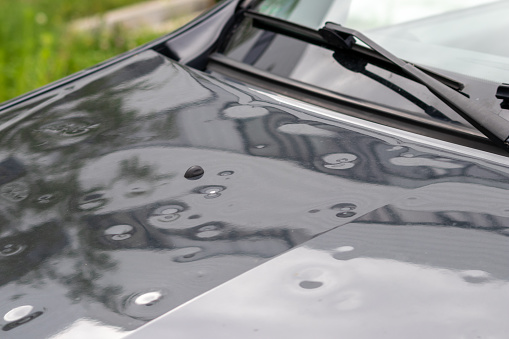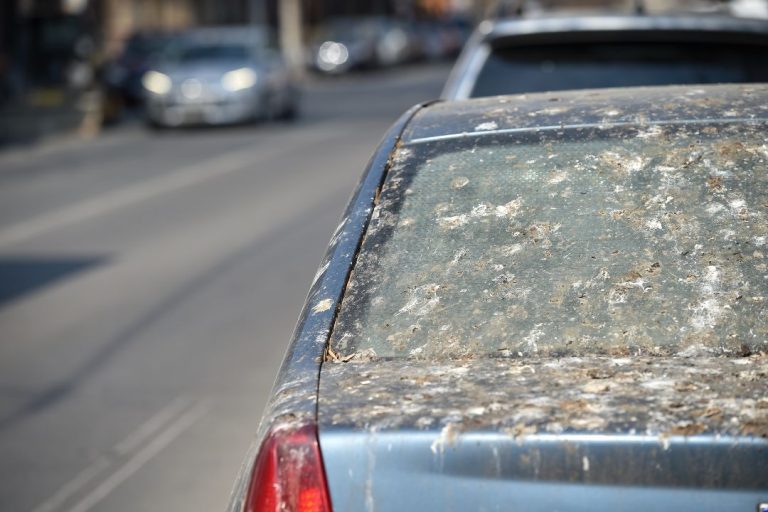Can You Sleep in a Car With the Windows Up: Hidden Dangers Revealed!
Yes, sleeping in a car with the windows up can be dangerous due to the risk of carbon monoxide poisoning. Sleeping in a car can be a convenient solution for road trips, emergencies, or when you’re simply in need of a quick rest.
However, it’s essential to prioritize safety when considering this option. One common concern is whether it is safe to sleep in a car with the windows up. While it may seem cozy and protective, there is a potential danger associated with this practice.
The accumulation of carbon monoxide gas is the primary concern, as it can rapidly build up in an enclosed space. We will explore the dangers of sleeping in a car with the windows up and provide alternative solutions to ensure your safety and well-being.
The Importance Of Proper Ventilation
When it comes to sleeping in a car with the windows up, proper ventilation is of utmost importance. While it may seem convenient to keep the windows closed in order to maintain privacy or block out external noise, it is essential to understand the potential risks that can arise from inadequate airflow. In this article, we will explore the air quality concerns in a closed and confined space, as well as the impact of a lack of oxygen and increased carbon dioxide levels.
Air Quality Concerns In A Closed And Confined Space
When you sleep in a car with the windows up, the air quality can quickly become a cause for concern. Without proper ventilation, pollutants such as dust, allergens, and even harmful chemicals from car materials can accumulate inside the vehicle. This can lead to nasal congestion, irritation of the respiratory system, and even an increase in the risk of long-term health issues.
Moreover, the lack of fresh air circulation can also contribute to the growth of mold and mildew, especially in humid climates. These microorganisms thrive in damp environments and can cause allergies, respiratory problems, and unpleasant odors in the car. Ensuring adequate ventilation helps reduce the moisture levels and the subsequent development of such harmful substances.
Lack Of Oxygen And Increased Carbon Dioxide Levels
Another crucial aspect to consider when sleeping in a car with the windows up is the risk of reduced oxygen levels and an increase in carbon dioxide concentration. When humans breathe, we inhale oxygen and exhale carbon dioxide. In an enclosed space, the limited exchange of air can lead to oxygen depletion and a build-up of carbon dioxide.
The human body requires a constant supply of oxygen to function properly. Insufficient oxygen levels can lead to drowsiness, reduced concentration, and even more severe consequences such as headaches, dizziness, or even loss of consciousness. Additionally, elevated carbon dioxide levels can cause drowsiness, shortness of breath, and in extreme cases, carbon dioxide poisoning.
By ensuring proper ventilation in your car, you can maintain a sufficient oxygen supply and prevent the accumulation of carbon dioxide. Opening the windows or using mechanical ventilation systems such as fans can help facilitate the exchange of fresh air and expel stale air, ensuring a safer and more comfortable sleeping environment inside the vehicle.
Understanding The Effects Of Heat And Humidity
When it comes to sleeping in a car, one of the key factors to consider is the level of heat and humidity. These environmental conditions play a crucial role in determining whether it’s safe and comfortable to sleep with the windows up. In this section, we will explore the potential risks of overheating and the impact of humidity on the body’s ability to cool down.
Potential Risks Of Overheating
Overheating in a car can have serious consequences for your health. When the windows are up, the temperature inside a car can rise rapidly, especially during hot summer days. This can lead to symptoms such as dizziness, fatigue, and even heat stroke.
The main reason why a car can get so hot is due to the greenhouse effect. With the windows closed, the sunlight enters the vehicle but cannot escape, causing the temperature inside to increase significantly. It’s important to note that the risk of overheating is not only present in warmer climates but can also occur in milder temperatures.
If you choose to sleep in a car with the windows up, it’s crucial to take precautions to prevent overheating. Park your car in shaded areas whenever possible, use sunshades to block direct sunlight, and consider using a battery-powered fan to circulate the air.
The Impact Of Humidity On The Body’s Ability To Cool Down
In addition to temperature, humidity is another factor that affects our body’s ability to cool down. When the air is humid, it becomes more difficult for sweat to evaporate from our skin. This can make it feel hotter and more uncomfortable, even if the temperature itself is not extremely high.
High humidity levels can also lead to other issues such as difficulty breathing, increased heart rate, and overall discomfort. Sleeping in a car with high humidity can disrupt your sleep quality and leave you feeling lethargic and groggy in the morning.
To reduce the effects of high humidity, consider using a dehumidifier or crack your windows slightly to allow for some airflow. Additionally, using moisture-wicking bedding and clothing can help absorb excess moisture and make sleeping more comfortable.
Overall, it’s important to be mindful of the effects of heat and humidity when considering whether to sleep in a car with the windows up. Taking necessary precautions to prevent overheating and manage humidity can help ensure a safe and comfortable sleeping environment.
The Dangers Of Carbon Monoxide Poisoning
The Dangers Of Running The Engine For Heating Or Cooling Purposes
One of the major risks of sleeping in a car with the windows up is the potential for carbon monoxide poisoning. Carbon monoxide (CO) is a colorless, odorless gas that can be emitted by the car’s exhaust system when the engine is running. It is highly dangerous and can be fatal if inhaled in large amounts.
Many people might consider sleeping in a car with the engine on for heating or cooling purposes, especially during extreme weather conditions. However, this can be extremely hazardous, as the exhaust fumes can seep into the car’s interior, leading to a dangerous buildup of carbon monoxide.
It’s crucial to understand that even if the windows are slightly rolled down, it may not provide enough ventilation to prevent carbon monoxide poisoning. Additionally, the risk of exposure to carbon monoxide can be further heightened if the car is parked in an enclosed space like a garage or under a covered area.
Risk Factors And Symptoms Of Carbon Monoxide Poisoning
Recognizing the risk factors and symptoms of carbon monoxide poisoning is essential to prevent a potentially life-threatening situation. Here are some key factors to consider:
Risk factors of carbon monoxide poisoning:
- Sleeping in a car with the windows up, especially if the engine is running
- Using the car’s heater for an extended period
- Improperly maintained or damaged exhaust system
Symptoms of carbon monoxide poisoning:
- Headaches
- Nausea and vomiting
- Dizziness and confusion
- Shortness of breath
- Blurred vision
- Loss of consciousness
If you experience any of these symptoms or suspect carbon monoxide poisoning, it is crucial to seek immediate medical attention and evacuate the vehicle as soon as possible. Remember, carbon monoxide is an invisible threat, and the effects can be deadly if ignored.
Ventilation Options For Sleeping In A Car
Sleeping in a car can be a convenient option for road trips or when you find yourself in need of a restful night’s sleep while on the go. However, one of the main concerns when sleeping in a car is proper ventilation. Good airflow is crucial for ensuring your comfort and overall safety. In this section, we will explore some effective ventilation options that can make your sleep in a car experience much more pleasant.
Utilizing Windows And Sunroofs For Air Circulation
When it comes to ventilation in a car, the first option that comes to mind is utilizing the windows and sunroofs. By opening the windows and sunroof, you can create a natural flow of fresh air, preventing the cabin from becoming stuffy and uncomfortable.
Here are a few tips to ensure optimal ventilation when using windows and sunroofs:
- Open multiple windows slightly to create cross ventilation. This allows air to circulate more effectively throughout the car.
- If you have a sunroof, crack it open or tilt it to allow hot air to escape from the top.
- Position yourself in the car so that you can benefit from the most airflow. For example, if it’s a hot day, position yourself closer to the open window or the sunroof.
- Consider using sunshades or window visors to block direct sunlight while still maintaining ventilation.
Installing Aftermarket Ventilation Systems
If you frequently find yourself sleeping in your car or if you want to enhance the ventilation capabilities, you may want to consider installing an aftermarket ventilation system. These systems are designed specifically for vehicles and can greatly improve airflow while you sleep.
Here are a few popular aftermarket ventilation options:
| System | Description | Benefits |
|---|---|---|
| Roof Vent Fans | Mounted on the roof of the vehicle, these fans provide continuous airflow and can help expel hot air from the cabin. |
|
| Window Vent Visors | Installed on the top edge of the windows, these visors allow you to crack the windows open slightly for ventilation, even when it rains. |
|
| Portable Ventilation Fans | Compact and easy to use, these fans can be placed inside the car to provide direct airflow where you need it most. |
|
By installing these aftermarket ventilation systems, you can enhance your sleeping environment, ensuring a comfortable experience no matter the weather conditions outside.
Safety Precautions For Sleeping In A Car
Sleeping in a car can be a convenient option for road trips or camping adventures, but it’s important to take necessary precautions to ensure your safety. While it may seem tempting to roll up the windows and cozy up for a nap, there are a few key safety measures you should keep in mind. By following these safety precautions, you can sleep comfortably in your car without any worries.
Parking In A Well-ventilated Area
When it comes to sleeping in your car, it’s crucial to park in a well-ventilated area. Proper ventilation is essential to maintain a steady supply of fresh air and reduce the risk of carbon monoxide build-up. Avoid parking your car in enclosed spaces or areas with poor airflow. Instead, look for parking spots that allow for adequate air circulation, such as open parking lots or well-ventilated camping areas.
Monitoring Carbon Monoxide Levels With Detectors
Carbon monoxide (CO) is a colorless and odorless gas that can be extremely dangerous when inhaled in high concentrations. To protect yourself while sleeping in your car, consider investing in a carbon monoxide detector. These detectors are designed to measure the levels of CO in the air and alert you if the levels become hazardous. Place the detector in a suitable location within the car, ensuring it is easily visible and audible even while you sleep. This added layer of protection will provide peace of mind and help you react swiftly in case of CO accumulation.
Remember, prioritizing safety is of utmost importance when sleeping in a car. By parking in a well-ventilated area and monitoring carbon monoxide levels with detectors, you can enjoy a restful night’s sleep without compromising your well-being.

Frequently Asked Questions Of Can You Sleep In A Car With The Windows Up
Can You Sleep In A Car With The Windows Up?
Yes, you can sleep in a car with the windows up. However, it is important to ensure proper ventilation to prevent carbon dioxide buildup. Consider cracking a window open slightly or using a ventilation system to maintain fresh air circulation.
Additionally, it’s crucial to park in a safe and legal spot to ensure your safety while sleeping in your car.
Conclusion
It is not recommended to sleep in a car with the windows up due to safety concerns. Poor ventilation and potential carbon monoxide poisoning can pose serious risks to one’s health. It’s always essential to prioritize safety and seek alternative sleeping arrangements when possible.
Remember, the well-being and comfort of oneself should never be compromised even in challenging situations. Stay informed, make informed decisions, and prioritize your well-being.





